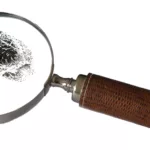Sustaining an injury that prevents you from working is bad enough. Watching your savings dwindle to nothing as your lawyer seeks a settlement leaves you more than a little uneasy. Instead of allowing worries to interfere with your recovery, why not apply for a personal injury settlement loan? Here are a few things you should know about the qualification process.
Factors That Matter to Other Lenders Aren’t Important to Settlement Lenders
Past experience tells you that financial lenders require a lot of information before they will approve or reject a loan application. What you don’t know is that most of what traditional lenders require are of no interest to settlement lenders.
Factors like your credit score, your debt to income ratio, and your employment status do not enter into the picture at all. When lenders who offer personal injury settlement loans talk with potential applicants, they stress the need to look at the particulars of the case. While you will still need to release information to the lender, very little of it will have anything to do with your credit or current financial status.
Proof of Your Injury
One of the first things the lender will need is details about your injury. That includes documentation to confirm the injury did occur. That documentation may be in the form of a police report, an injury report from an employer, or documents supplied by the physician or medical facility that provided the initial treatment. Establishing that you have sustained an injury makes it possible to move to the next step.
Status of Your Lawsuit
In order to qualify for a settlement loan, there must be some sort of case filed with the court and an active pursuit of a settlement. This is where information provided by your legal counsel comes in handy. Your lawyer can provide information the lender can use to confirm the case is properly filed and current active. The confirmation comes from the court using the information provided by your lawyer.
If other legal documents are required, the lender will request them. You in turn will authorize your lawyer to supply copies to the lender. Assuming everything is in order, you have moved another step forward in the process the lender uses to approve or deny applications for plaintiff funding loans.
The Matter of Liability
Liability refers to who is responsible for the actions that led to your injury. The lender will also need documentation that confirms the person or entity you are suing is responsible. Information like copies of sworn testimonials from eyewitnesses as well as police reports may be used to demonstrate liability. When documents indicate you have an excellent chance of receiving a settlement or winning your suit, the lender is likely to approve the loan application and discuss disbursement options with you.
Call today and talk with an expert about a settlement loan. It won’t take long to provide the details required and submit the application. Many lenders will review the facts and have an answer for you in less than one business day.








